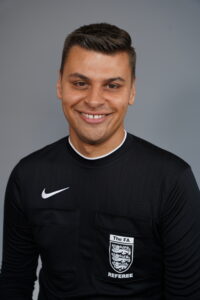Sleep isn’t just something we enjoy as a reward for a hard shift on the field of play, it’s part of the natural rhythm of life. It’s an essential part of our survival, and a vital component for good mental and physical health. An average adult should have between 7 and 9 hours’ sleep every night – so what can we do to improve the quality of our sleep? Let’s start by looking at how sleep impacts our physical and mental wellbeing.
Poor sleep is associated with many physical health problems, including heart disease, stroke, diabetes and cancer. Without good sleep, our immune system can also be negatively compromised. Sleep disturbance has also been linked to all major mental health problems, including depression, anxiety disorders, post-traumatic stress disorder and suicide.
Not only can sleep deprivation have a significant negative impact on our physical and mental health, but it can also affect our performance out in the middle.
Sleep deprivation has the potential to put others at risk as well, so it’s important to recognise the signs, which may include:
- Fluctuations in mood
- Anger and frustration
- Impulsivity
- Sleepiness
- Increased use of stimulants such as caffeine or energy drinks
- Poor concentration/focus
- Impaired decision-making
- Memory impairment
- Reduced performance
- Reduced communication
- Difficulty multitasking
To sum up what we’ve learned so far, good sleep is a vital part of ensuring you stay physically and mentally well, as well as helping us to recover from illness. In other words, sleep isn’t a luxury; it’s a non-negotiable necessity.
How To Get A Great Nights’ Sleep
As we’ve seen, it’s an indisputable fact that good sleep is essential. But to get a great night’s sleep, we need to understand and implement good ‘sleep hygiene’. This is all about making small changes to improve the quality of our sleep.
Electric and LED Lighting
Bright light and ‘blue light’ emitted from screens (televisions, laptops, tablets, and smartphones) can reduce and delay the release of our natural sleep hormone. This means that we’re less likely to feel ready for bed at night and our sleep/wake cycle can be disrupted. To prevent this happening, avoid using screens for at least an hour before you go to bed, and keep screens out of the bedroom. If this isn’t possible, use ‘night-time mode’. It will also help to avoid bright lights in the evenings and to get natural light in the mornings (it’s a good idea to aim to spend at least 30 minutes of your day in sunlight).
Temperature Regulation
In the evenings, your core body temperature drops by around 1oC and this supports our natural sleep cycle. Central heating, bedding and pyjamas all increase our core temperature, which may negatively impact our sleep. Ideally, our bedroom should be kept slightly cooler (the optimal temperature for adults is 18.3oC), and if possible, pyjamas and bedding should be made from breathable fibres, such as cotton. Strenuous exercise can increase our body temperature, so it is best practice to avoid this for 3 hours before bed. However, as referees, this can be a challenge when getting home from a midweek evening appointment.
Caffeine
Caffeine is a stimulant drug that may help to combat sleepiness, but it can also have a negative impact on our ability to sleep.
When you drink a cup of coffee or tea, it takes around 30 – 60 minutes for the caffeine to reach peak levels in your blood. It’s therefore worth being aware of how often you’re drinking caffeine and noting when you’re likely to experience its maximum effect. It takes your body around 5 – 7 hours to eliminate half the caffeine you’ve consumed, so if you have a caffeinated drink at 9am, half the caffeine is still active in your body by 2-3pm. For that reason, it’s best to avoid caffeinated drinks for 6 hours before bedtime to help get a good night’s sleep.
Note: Different foods and drinks contain different levels of caffeine, and ‘de-caffeinated’ doesn’t mean ‘no caffeine’. The European Food Safety Authority (EFSA) recommends a maximum caffeine intake of 400mg per day for adults, so try not to exceed this limit.
Alcohol
Alcohol is bad for our sleep because it causes our sleep to become fragmented and reduces the amount of time we spend in restorative sleep, which we need to maintain our physical and mental health. If you do drink alcohol, avoid exceeding the recommended limits and avoid drinking alcohol before bed.
Exercise
There’s increasing evidence to demonstrate that consistent and regular exercise is one of the most effective natural treatments for disturbed sleep. That’s simply because when we’re physically active, our body expends energy and we’re more likely to feel tired and ready for a rest at the end of the day. As such, if we exercise regularly, we’re more likely to be able to establish a regular and healthy sleep/wake cycle. However, remember that, if possible, avoid strenuous exercise 3 hours before bed.
Relaxation
Finally, relaxing before bed is essential for good sleep, so try to incorporate a ‘wind down’ schedule and pre-sleep routine into your evening. During this period, try to avoid activities that stimulate your mind, or that may create anxiety (for example, watching disturbing news footage). Instead, do things that help bring a sense of calm, such as having a relaxing bath, reading a book, deep breathing exercises, or listening to relaxing music.
At The Third Team I work individually and in collaboration with different professionals where I have developed workshops and 1-2-1 sessions associated with Resilience and Mental Toughness Development to help referees. The workshops and 1-2-1 sessions are interactive, where referees are encouraged to open up and share their experiences to help themselves and each other.
Feel free to contact me if you’d like to know more about my workshops or 1-2-1 sessions and how I could help you or your officials.
Best Wishes,

Nathan Sherratt
Referee Educator & Managing Director of The Third Team

Nathan Sherratt
Nathan Sherratt, Referee Educator, Resilience Trainer and Managing Director of The Third Team. A Mental Toughness Practitioner based in County Durham, North East England.

